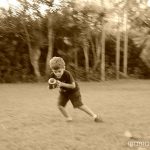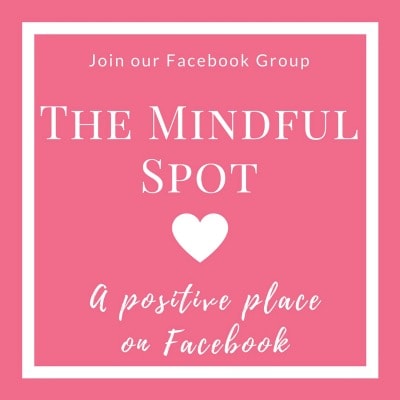The first person I ever really loved was my mom.
I know, big surprise.
What is surprising is when it happened. Although I had been a clingy mama’s girl from birth, it wasn’t until I was about 26 years old when I finally understood my part of the verb, love.
The end of my twenties marks the beginning of the person I am today. After a relatively happy childhood, I floundered in young adulthood. There were events and reasons that explain much, but those are not to be shared now. In some ways, I think they are irrelevant anyway. The fact is, we all struggle to grow into our own. It’s a natural part of reaching maturity, our evolution towards adulthood.
After a dark period, I found my way into light. Through yoga, literature, and travel, I discovered my voice. Not the loud, outspoken one, which was always (sometimes, regretably) present, but my quiet, inner voice that had been drowned out by all the noise of growing up.
It was that voice that taught me how to love.
Here’s what happened: one day my mother annoyed me.
Although I don’t remember the details, I know it was something inconsequential. I was in between travels and living with her at the time. Naturally, we occasionally got on each other’s nerves. My normal response was critical, either spoken or unspoken; I made note of my mother’s flaws.
But that day, I had a flash of insight. Up until that moment, I felt proud of myself if I let something pass without pointing it out. Ah, the smugness of youth! I knew she was generous in letting me stay with her, and I should really bite my tongue and get my own place if I felt bothered.
I always loved her in spite of her flaws. I thought that was what love was.
I was wrong.
In a moment of grace I realised my mistake:
Real love is not loving someone in spite of their flaws: it is loving them because of their flaws.
None of us is perfect. We are all deeply, humanly, flawed creatures. Loving someone in spite of their faults means not loving the whole. It means privately wishing for unrealistic change, because no one will ever walk the earth as a flawless human being. If that’s the requirement for complete love, all of humanity is doomed to be heartless and heartbroken.
I looked at my mother and made a choice.
Whatever she did that annoyed me was evidence of her humanity, and I made a choice to love her for it. To love her for being exactly who she is: a perfectly, flawed human being.
The way she had always loved me.
Which brings me to my children and the way I love them.
If you have read this blog for any amount of time, you know I burst with pride for my two sons. They are the handsomest, smartest, sweetest, most playful, well-adjusted, athletic, hilarious, interested, fascinating boys to ever grace our planet.
See the problem?
I didn’t, at first.
Of course, mama is their biggest fan, but how long can they meet these platinum standards?
All parents root for their kids, but the fact is, our children can’t all be the smartest kid in class and the fastest kid on the field. They can’t be a prodigy and well-rounded at once. Even if our expectations are less ambitious, they can’t meet them. They won’t always act in kindness; we all have a mean and selfish streak.
It is impossible to be both a perfect child and a real human being.
As parents, it is our job to guide our children through their early years and into adulthood. It is easy to mistake their failings as our own, and any perfectionist tendencies we have are sure to bristle at the thought.
It is hard to know where the line is between teaching our kids to do their best, and where our expectations are too intense. For instance, when is a child using rude back-talk, and when is he entitled to express a differing opinion? It’s easy to over-correct or under-correct that behavior.
My son Max has a temper. He is also every bit the stubborn bull of his sun sign. Once he calms down, he is very good at reassessing the situation and identifying what went wrong. At that time, he will accept a consequence quite nobley. But when he’s hot and mad, he will not back down no matter what the cost.
The easy route to take would be to label his behavior as totally unacceptable and to dislike that side of him. But you can’t love someone completely without loving all their parts. Not tolerating, but actually loving deep imperfections.
Although at times he infuriates me, I can’t discipline passion out of him. Nor do I want to. If guided properly, the combination of tenacity and passion could serve him well in life.
But what if he never manages to get it right?
What if he ends up being one of those people who always speaks without thinking, and is plagued with deep regret? What if he becomes a person who won’t ever admit he’s wrong, even as his life falls apart around him?
Of course, I will continue to love him. I will even love his flaws, because the part of us that fails needs love the most. Even at the tender age of five, his flaws cause him pain. He needlessly raises the stakes, and turns little problems into big ones. Nobody likes doing that. Being unable to control yourself is a terrible feeling.
Those moments when his faults shine are opportunities for me to love him for who he is, not who I’d like him to be. This is how I teach him how to love wholly and unconditionally. There are other lessons about politeness, correct behavior, and the wisdom of thinking things through. We work on those too, but I hope, never at the expense of learning how to love.
To be loved completely is the only way we get through life as real human beings.
To love completely is the only way to live as real human beings.
Isn’t that what we all want to feel?
That someone loves us with a love powerful enough to accept and cherish us exactly as we are:
Perfectly flawed human beings.
Namaste.









Leave a Reply